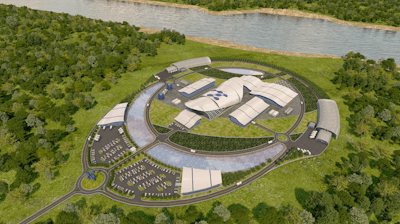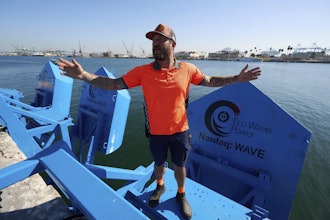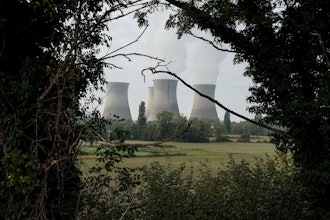
IDAHO FALLS, Idaho (AP) — A Utah energy cooperative said it will reduce the number of small modular nuclear reactors it will build in Idaho from 12 to six for a first-of-a-kind project that is part of a federal effort to reduce greenhouse gasses that cause climate change.
But Utah Associated Municipal Power Systems said the reactors will be more efficient than previously planned so the amount of power produced will only drop from 600 to 462 megawatts.
Cooperative spokesman LaVarr Webb told the Post Register in a story Friday that a plant with six reactors would be the right size for its members and outside utilities that want to join.
The project is part of an U.S. Department of Energy effort to reduce greenhouse gasses by using nuclear power to complement intermittent renewable energy.
The Energy Department late last year awarded the cooperative about $1.4 billion to help develop and build the commercial reactors at the Energy Department's 890-square-mile (2,300-square-kilometer) site in eastern Idaho that includes the Idaho National Laboratory.
The reactors are being built by Portland, Oregon-based NuScale Power. The U.S. Nuclear Regulatory Commission last year approved NuScale’s application for the small modular reactors, the first time U.S. officials approved a design for a small commercial nuclear reactor.
“Before joining a next-generation, first-of-a-kind nuclear plant, utilities obviously want to be certain the plant is feasible and will be built," Webb said. “Now that we have made significant progress, including a large cost-share award from the Department of Energy, and NuScale has received design approval from the (Nuclear Regulatory Commission), we’re seeing more and more utilities express interest in the plant.”
Idaho Falls has committed to buying 5 megawatts of power from the reactors through the Carbon Free Power Project. The city had been committed to 10 megawatts but cut that in half in October amid concerns about financial risks.
“There is not much of a carbon-free future for many municipalities if we can’t figure out some of this bridge technology to get us to some of these long-term solutions,” Idaho Falls City Council member John Radford said at a July 8 meeting. “This project is something that can help keep this country on this trajectory to a carbon-free future and maybe a better existence for all of us.”






















